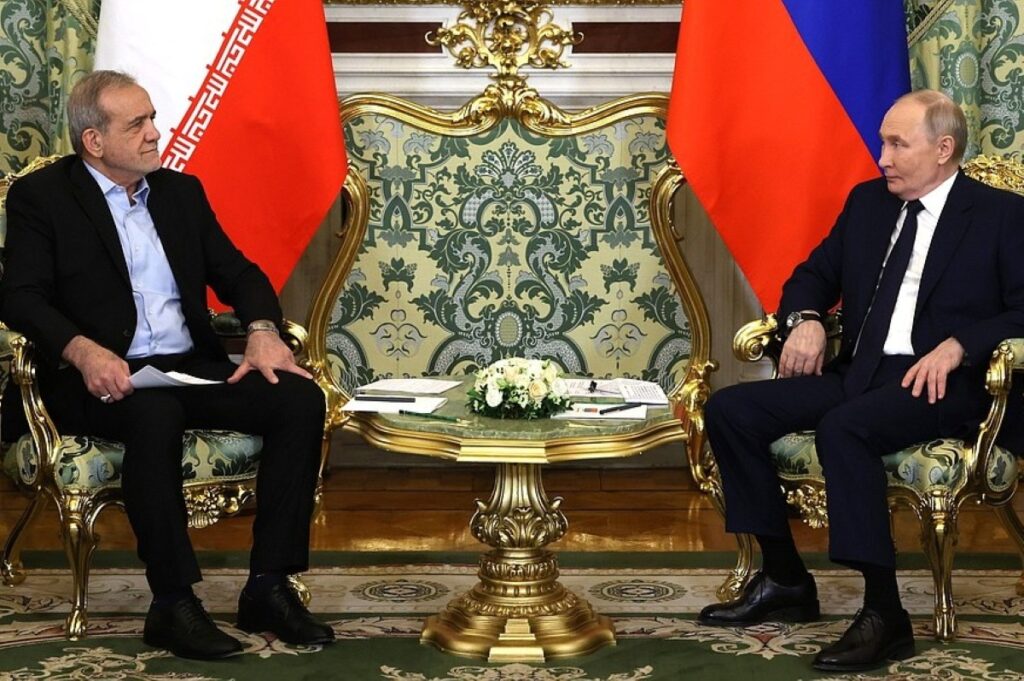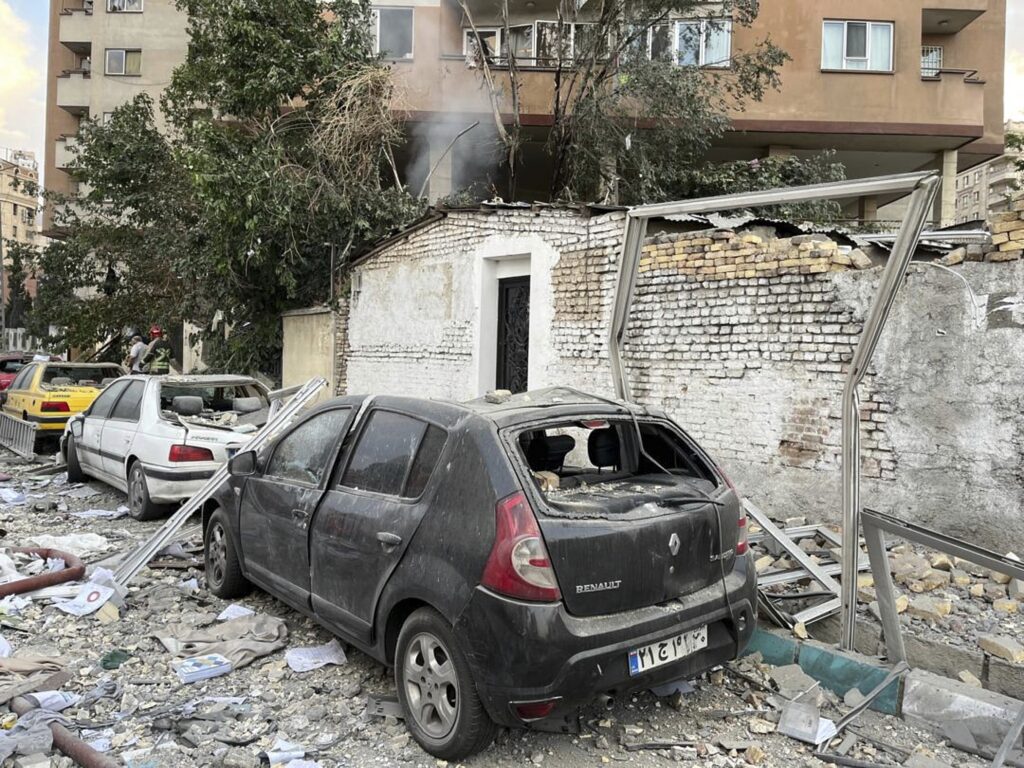And Then There Was One: Israel’s War on Iran Takes Apart Russia’s Anti-West Network
Russia is reeling from the impact of war on Moscow’s Middle East allies.

The Kremlin, reeling from Israel’s blows against Moscow’s Mideast allies, now fears that Israel is secretly planning its biggest move: regime change in Iran. With few cards left to play, President Putin on Friday called the leaders of Israel and Iran. Then, he called President Trump to offer his services as peace mediator.
Mr. Trump brushed off the offer and started moving American military assets into position. Today, the American president either is playing brinkmanship or is preparing to join Israel in bombing Iran’s nuclear facilities. Either way, 20 months of Israeli action has methodically stripped Russia of its assets in the region.
Since October 2023, Israel neutered Iran’s three proxies, all supported by the Kremlin and its anti-West alliance. These were the three Hs — Hamas in Gaza, Hezbollah in Lebanon, and the Houthis in Yemen. Then, six months ago, Israel neutered what was left of Syria’s offensive military capacity.
All the while, Israel presented Russia with a friendly face. In recent months, Israel joined Russia in voting against a pro-Ukraine resolution in the UN General Assembly. Later, Israel lobbied the Trump administration to allow Russia to maintain its military bases in Syria. This friendly face allowed emigration to Israel to continue largely unimpeded. Over the last decade, Russia’s Jewish population has roughly dropped in half, to 80,000, with many émigrés moving to Israel.

Now Israel attacks Iran, Russia’s closest ally in the region and paymaster for all four anti-Western entities. If Israel succeeds in severely weakening the mullahs in Iran — or ending their 46-year-old rule — Russia will lose a key ally. Far more important than Syria, Iran is a neighbor of Russia across the Caspian Sea. Iran has 92 million people, almost four times the population of Syria.
“The situation is developing in a dangerous direction for Russia,” the CIS Institute’s director, Konstantin Zatulin, posted on Telegram from Moscow.
It is unclear how the bombing campaign will play out. Traffic jams on highways out of Tehran indicate that many Iranians have lost confidence in their government. In the region, pieces of a long-frozen geostrategic puzzle suddenly show signs of shifting.
Tomorrow, Prime Minister Nikol Pashinyan of Armenia makes, on short notice, a rare visit to Turkey to meet with President Erdogan. The century-long enmity that Armenians hold for Turks is well known. Less known is the open border and thriving trade that Armenia has with its southern neighbor, Iran. Two months ago, Iran and Armenia held their first-ever joint military drill, along their 27-mile long border.

The goals of the Turkey trip are to lock down a peace treaty with Armenia’s eastern neighbor, Azerbaijan, and to open Armenia’s western border with Turkey. Ankara closed the border in 1993. Historically, Moscow is the umpire between Armenia and its neighbors. This tradition started in 1828 when Russia won a war against Iran, then called Persia.
In January, Russia and Iran signed a 20-year “special partnership” treaty. However there is no mutual defense clause. With arms stocks low due to Moscow’s war against Ukraine, Russia refuses to supply Iran with sophisticated jets and air defense systems.
“Russia was unable to prevent Israel’s massive strike against a state with which it signed a comprehensive strategic partnership agreement five months ago,” a Russian political scientist, Andrei Kortunov, lamented Sunday in the Moscow daily Kommersant. “Moscow is clearly not prepared to go beyond condemning Israel’s actions and provide Iran with military assistance.”
Yesterday, Mr. Putin was defensive when asked about Iran. He said Russia is keeping about 600 technicians and business people in the country: “And we’re not leaving. Isn’t that support? Iran has not asked us for any other support.” Later, he added: “About the strategic partnership, there are no articles related to the defense sphere … our Iranian friends don’t even ask us to do this. So there’s practically nothing to discuss.”
Last year, Russia became the largest foreign investor in Iran. Now these billions of dollars invested in oil and gas projects are at risk. Over the last two years, Iran sold to Russia thousands of low-cost military drones. Yet now Russia has mastered the technology and is less dependent on imports.
For Russia, there are two short-term upsides. The price of Urals oil spiked by 17 percent over the last two weeks, hitting $71 a barrel. This is well above the $60 price cap set for Russian oil by the Group of Seven countries to hamper Moscow’s ability to fund its war in Ukraine. The price could go higher if Iran closes the Strait of Hormuz, a major shipping corridor for oil and gas exports.
Pro-Kremlin commentators note with satisfaction that at the G-7 meeting this week in Canada, Mr. Trump canceled a meeting with President Zelensky, scheduled for Tuesday. He flew back to Washington Monday night, reportedly to deal with the Israel-Iran crisis.
Other leaders of the Western countries showed little sign of softening on Mr. Putin. Responding to Mr. Trump’s suggestion that Russia be re-admitted to the G-7, Germany’s new chancellor, Friedrich Merz, told Germany’s Welt TV on Tuesday that “there is no place for war criminals” in a group of the world’s largest economies and democracies. “Therefore, it is natural that there is no place for Putin at this table.”
Responding to Mr. Putin’s mediation offer, Prime Minister Meloni said drily: “Giving the role of mediating a war to a country which is already in another war doesn’t seem like one of the best options.”

